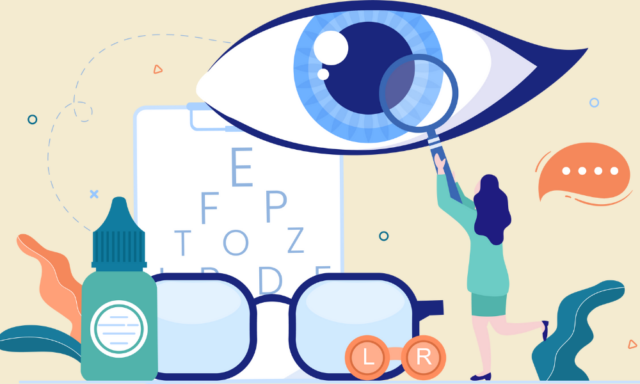
Social media has revolutionized how people share and consume information, including health advice. Some trends spark positive awareness about eye care, but others pose significant risks to eye health, spreading misinformation that’s ineffective at best and downright dangerous at worst.
As ECPs, staying informed about viral phenomena is always a good idea. You have an important role to play in dispelling myths and educating patients about what constitutes effective eye care — and what doesn’t.
If you’ll remember, we started 2024 hearing about some truly bad ideas:
- Bleach/bright eye challenge (seems like this was originally meant to be parody, but then it went viral…)
- Mucus fishing challenge (forcing mucus out of an irritated eye using a finger or Q-tip)
- Sun gazing (staring at the sun on purpose for “health benefits”)
- Stye popping content
What’s been going on since then? Are there other viral trends or eye health misinformation you should know about? Oh, of course there are.
This year, social media has popularized questionable products, like eye drops that promise to change the color of the iris. These unproven, unregulated solutions come with significant risks, including severe inflammation, heightened light sensitivity, even vision loss.
Surgery or procedures that claim to lighten one’s eye color have also gone viral. From iris implants to corneal tattooing to keratopigmentation for vanity purposes, this type of content is attracting lots of attention. Risks include photophobia, glaucoma, cataracts, corneal disease, and vision loss or blindness.
Recommended read: Can You Change Your Eye Color? Procedures Carry Big Risk
Another trend promoted ballpoint pens as improvised eyeliner to achieve precise makeup looks in a pinch. This practice can lead to severe eye irritation, puncture wounds, and potential ink toxicity; the chemicals in pen ink are obviously not formulated for use near the eyes.
It’s important to understand that when damage to the eyes occurs as a result of these social media trends, the mental health effects can be just as devastating as the physical fallout.
Misinformation about everyday eye care also continues to circulate online. Blue light-blocking glasses, for example, are often marketed as a must-have for preventing eye damage from screen exposure. While blue light contributes to digital eye strain, there’s no robust evidence that it causes long-term ocular harm or necessitates these glasses for disease prevention. Similarly, myths about eye exercises that can cure refractive errors like myopia or hyperopia remain pervasive, despite being debunked by experts time and again.
Anti-LASIK TikTok content appears to be on the rise, too. And the old chestnut that smoking marijuana can prevent or treat glaucoma.
Viral for good
Sometimes a cautionary tale will find traction. Improper use of mascara — leaving mascara on overnight, to be specific — gained attention this year. One OD went viral sharing a story — with photos — that illustrates the dangers of failing to remove mascara (complications like conjunctivitis and the formation of concretions under the eyelids, which can cause scratches and follicular conjunctivitis).
Another story that went viral in a good way:
Rachel Prochnow, from Austin, Texas, was one of the 45 million people in the United States who wears contact lenses on a regular basis. Despite having worn them since she was 12 years old, no doctor ever gave her any reason to worry that they could harm her health. Sadly, in 2023, while 34 weeks pregnant, she “went blind” in one of her eyes after wearing her lenses in the shower. Prochnow, who recently underwent a cornea transplant to redeem her vision, now wants others to know about the rare condition that caused her blindness that optometrists never warned her about. (Source: Woman Who Lost Eyesight Due to Showering With Contact Lenses Issues Warning)
What ODs can do
Consider using your digital presence to spread accurate information. This type of content can be extremely popular! Address so-called eye health hacks head-on. Let patients know they can always reach out to you with questions about online content of this nature. And be sure to respond with trustworthy information and recommend legitimate resources like the AOA. Your expertise is a powerful antidote to the harmful myths circulating online.
Bonus recommended read: Ocular complications after eyelid tattoo removal.




